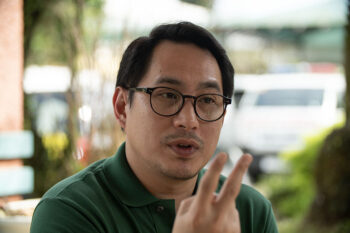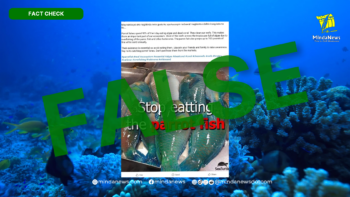DAVAO CITY (MindaNews/10 Nov) — Two weekends back, my team and I delivered a workshop at the joint conference of the ASEAN Regional Union of Psychological Societies (ARUPS) and the Psychological Association of the Philippines (PAP). It was the fourth convention for the ARUPS and the 50th for the PAP. The theme was on the role of ASEAN psychologists in building resilience and hope.
Considering my backlog, I had actually thought about giving the conference a miss for once, but ADMU’s Dr. Arsenio Alianan was insistent about the need for our colleagues to learn about COPERS’ experience with Typhoon Pablo. Last December, the PAP had designated the ADDU Center of Psychological Extension and Research Services (COPERS) which I head, as the hub of the PAP’s mental health and psychosocial response to TS Pablo, the worst storm to hit this region in a hundred years.
Yes, we owed it to our colleagues who had generously supported our operations to report back and to share with them what we learned out there. I was joined by Fr. Edgar Tuling, the parish priest of New Bataan, and Sinver Merlas, our volunteer who had seen the most deployment for the most varied populations that needed psychosocial interventions for Pablo. I was hoping that whatever we shared and the semblance of inter-agency cooperation we presented could be used by psychologists to strengthen community-based resources in response to extreme events, which – don’t look now – seem to be getting more intense, more destructive, and a little bit more frequent than ever.
John Reese, that mouth-watering hunk so arrestingly played by Jim Caviezel on the TV show Person of Interest, says: “One thing I learned out there – you are all alone and no one is coming to save you.”
He was talking about surviving the battlefields of Iraq, but he might just as well have been talking about the aftermath of Sendong, or Pablo, or the war in Zamboanga, or the Bohol earthquake, or Yolanda.
No one is coming to save you.
Not for the next 72 hours, if my data on Mindanao disasters hold true.
Apprehending how crucial that first 72 hours would be for survivors cut off from external support, I had set out in 2012 to capacitate some vulnerable communities in Mindanao for psychological first aid and basic life support skills. In Iligan City, we had on several occasions borrowed the medical team of the 1st Infantry “Tabak” Division, then under the present Eastern Mindanao Command chief Lieutenant General Ricardo Rainier V. Cruz, to teach village residents how to transport the wounded, staunch blood loss, and save drowning victims when there are no specialized medical emergency equipment to be had.
Come to think of it – the COPERS was a community-based resource when Pablo struck the Davao region. We had the context, the expertise and the warm bodies for psychosocial response to Pablo, but what I was to find out 72 hours after Pablo hit was that the disaster response structure in most communities hit did not know how to make it possible for local psychologists to help.
We had mobilized as early as the day after Pablo, but until Christmas, we found ourselves still having to negotiate the breakdown in the Incident Command System (ICS) to bring help to the grassroots. In all that time, the DOH (Department of Health), tasked under the ICS to oversee MHPSS (Mental Health and Psychosocial Support) response, could not provide us unequivocal guidance. It was very frustrating.
The DOH regional MHPSS cluster just directed us to use their form to report to them what we did every time we came back from where we were. What kept us going was the knowledge that people needed help and there were traditional leaders, faith-based organizations, and schools that could help us get to people in need if only we could get to them directly. We sought out these redundant systems and made new friends. They helped us help others.
It would be more than a month before humanitarian agencies would call us up, seeking community-based volunteers to deliver on their MHPSS agenda. Normally thin-skinned about this unintended insult, I had swallowed my protests and networked with these iconic agencies, sending volunteer teams out there on their request. It was not the time to argue the propriety or the wisdom of having the priorities of my community determined by outsiders who did not have the expertise to deliver on these global standards of MHPSS that they set. They would – after the long time it took for them to come to the ground to assess and determine what needed to be done – come back to us anyway for assistance in service delivery.
The irony is that we had been here all along, capable and ready to get to work.
And we would still be here after they would have gone chasing after the next disaster somewhere else.
Dark times are upon us again, and we deeply sympathize with the TS Yolanda survivors in Leyte, Cebu, Panay, Mindoro, and Coron. I pray that things would get better for them after 72 hours when hopefully roads start opening up and relief could come in. Disaster response systems could be more securely established and survivors can have access to meet their survival needs. Meanwhile, we make ourselves useful responding to data requests from our colleagues on the ground.
I tweak off things I should have harped on earlier: the return of those short-wave battery operated radios, for example. Cellphones and the internet are pretty much useless when cellsite towers have been torn down. Every barangay should have a radio, and communication links with nearby barangays should be established to provide an unbroken link of information when our I-phones and tablets become no better than expensive paperweight.
Personally, I am heartened by the evidence of adaptive learning that has prevented loss of life in Mindanao this time around. We note the readiness of people to respond to efforts at preemptive evacuation days before Yolanda backlashed parts of Mindanao. With practice, we might even get better at maintaining the sanitation of designated evacuation centers and directing activities there by grid so as to protect children, women, the sick and the elderly.
And as we tune in to reports on the devastating impact of Yolanda, we don’t forget the Pablo survivors. Yolanda awakened for some their dread and unspoken terror of a world gone mad. Like terrified children waking from a blood-curdling nightmare, they too need soothing at this time.
Sad fact. A disaster is seldom ever over. (Gail Tan Ilagan, PhD, Director of the Center of Psychological Extension and Research Services at the Ateneo de Davao University, writes the column, “Wayward and Fanciful” for MindaViews, the opinion section of MindaNews)







